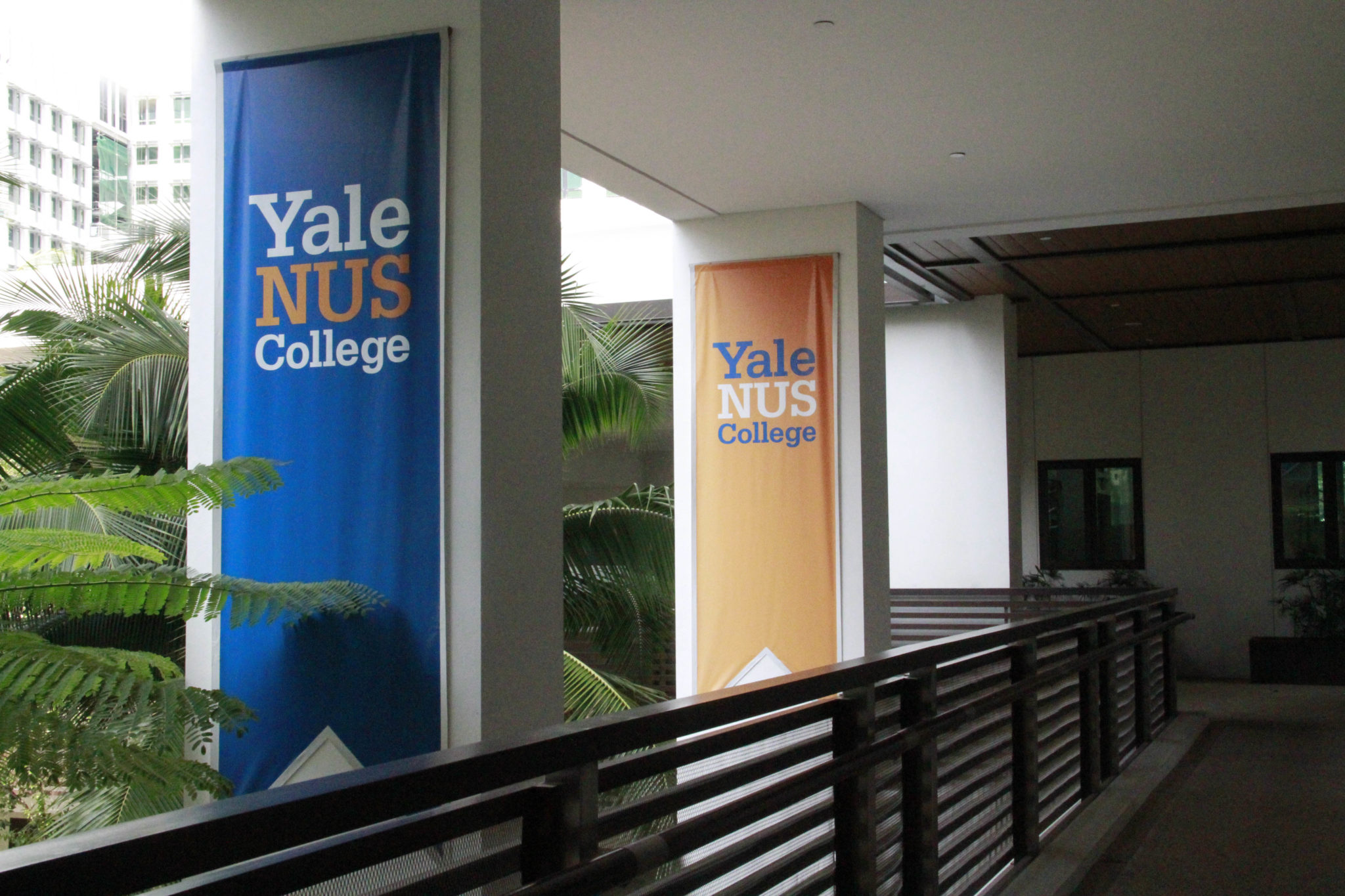
The inaugural class of around 150 students at Yale-NUS College has produced the first Schwarzman Scholar since the school formed in 2013.
Earlier this month, the latest batch of Schwarzman scholarships were announced, and Mollie Saltskog YNUS ’17 will join eight Yale students pursuing a fully funded master’s degree next year at Tsinghua University in Beijing, one of China’s most prestigious schools.
As Singapore’s first liberal arts college, Yale-NUS has attracted its share of attention and scrutiny. While Prime Minister of Singapore Lee Hsien Loong called the collaboration with Yale an addition “different and valuable to Singapore’s ecosystem,” concerns about academic freedom in an authoritative state like Singapore linger. However, Yale-NUS is rising to the ranks of other top U.S. schools, and the recent award of the Schwarzman scholarship put its position alongside the likes of Williams and Wellesley College, which each produced one Schwarzman Scholar this year.
“We are thrilled that the Schwarzman Scholars program has selected a member of our first graduating class for admission,” said Yale-NUS’ Dean of International and Professional Experience Trisha Craig in a school press release. “Like those who become Schwarzman Scholars, Yale-NUS students are internationally minded, adaptable and engaged.”
Saltskog, who joins the second-ever class of Schwarzman Scholars, is a Global Affairs major. In Singapore she took full advantage of what she called “the default of being the inaugural class — the opportunity to build everything from scratch.” Saltskog founded the school’s tennis club, an animal welfare group and a student-run bookstore comparable to the Yale Bookstore in New Haven.
Although Singapore boasts several of Asia’s top universities, many local students choose to study elsewhere because of a Singaporean tendency to focus on engineering and science in higher education. Saltskog said that students she meets from the National University of Singapore are curious about her experience at a liberal arts college.
“They have a lot of questions,” Saltskog said.
Originally from Sweden, Saltskog called her decision to enroll in the Singapore school a “twist of fate.” Initially set on studying in the U.S. after high school, Saltskog accepted the offer from Yale-NUS from the Singapore airport after the school’s prospective students weekend. For Saltskog, the appeal of Yale-NUS was its diverse student body and the unique challenge of living in a culture so removed from that of Sweden.
Nancy Gleason, head of study of Global Affairs at Yale-NUS, described Saltskog as “passionate about solving complex problems relating to global security.”
“Mollie has a habit of mind characterized by the comprehensive exploration of issues and ideas, which is matched with a keen ambitious drive, both inside and outside the classroom,” Gleason said.
Chin-Hao Huang, a political science professor at Yale-NUS who taught Saltskog in a senior-level seminar on China’s foreign policy, praised her “first-rate, graduate-level research and scholarship” that has both theoretical importance and political resonance.
Huang added that he has been impressed with her readiness to learn and her willingness to challenge her own presumptions and those of her peers.
Huang said he is confident that the inaugural Yale-NUS class is as well-prepared as students at any other top-tier research university or liberal arts college in the U.S., Asia or anywhere in the world.
“They have clear focus on making sure that they learn as much possible, taking full advantage of the close student-faculty interaction in our small class sizes, of the interdisciplinary nature of many of our courses and of the experiential learning aspects embedded into our curriculum,” Huang said.
Gleason echoed the positive interaction with the first graduating class of students, calling teaching them an “honor and privilege.” Gleason said global affairs studies at Yale-NUS has a unique advantage since the school sits in the crossroads of Asia.
“Exploiting the geography of our global position in Singapore gives students’ first hand experience in the networks, structures and pathways of globalization,” Gleason said. “On the ground, this means our students can board shipping vessels, meet with APEC officials, explore green urban management, learn about religious tolerance, and work with some of the strongest faculty in their fields while doing so.”
She added that all global affairs majors are free to compile research from Asian and Western resources.
Saltskog first learned about the Schwarzman scholarships during her semester-long study abroad at Yale, finding the scholarship program fulfilled all her postgraduate plans.
The program’s emphasis on leadership skills also drew Saltskog to apply. She said that during college she has struggled with finding her leadership skills, calling for leadership workshops that promote a diverse group of leaders including women.
Having studied Mandarin at Yale-NUS, Saltskog cherishes the opportunity to study in China, she said.
“The vision that Schwarzman has of the leaders of the 21st century — if you don’t understand China to some extent — is quite crucial to be able to tackle the challenges,” Saltskog said.







